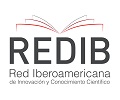Becomings and conversions: rethinking habits and affect in an intercultural context
DOI:
https://doi.org/10.14409/eltaco.10.19.e0132Keywords:
becoming, perspective, affect, anthropophagy, decolonial thoughtAbstract
The text proposes a reading of the book (hard to classify, since it transits in‒between novel, autobiography, biography and ethnography) by Brazilian anthropologist Aparecida Vilaça, entitled Paletó and me (2018). It recounts the affective, filial relationship with her indigenous «informant» (who belongs to Wari' tribe) known as Paletó, who lived the first 30 years of his life without contact with the white man and the western culture. In her memoirs of whom she considers «her father», Vilaça recounts both the transformations she has observed in the tribe over the course of 30 years and the vicissitudes of Paletó's trips to Rio de Janeiro and his observations of the «big city». In this reading, we emphasize the differences between the Wari' self‒perception and the Western conception of identity. The Wari' conceive themselves as constantly becoming and transforming themseleves, assuming the point of view of the other, including the enemy’s. Instead of understanding identities substantively, they understand them as modal forms, that depend on habits which, in turn, are always changing. We propose that this worldview («cosmología») challenges not only the Western concept of culture —which relies on a certain stability of habits and identities— but also «decolonial» notions such as hybridity, «mestizaje» and synthesis.





















